Search Definitions
Browse Content (p. 268)
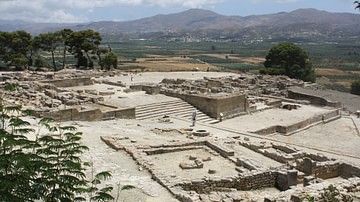
Definition
Phaistos
Located on the fertile Mesara plain in central Crete, Phaistos has been inhabited since the Final Neolithic period (c. 3600-3000 BCE). The settlements greatest period of influence was from the 20th to 15th century BCE, during which time it...
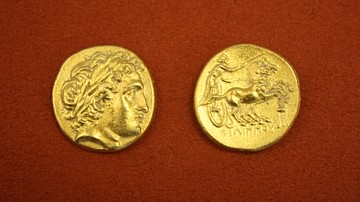
Definition
Numismatics
Numismatics the study of coinage, and is a wonderfully useful tool in the archaeologist's and historian's toolbox. One of the best things for an archaeologist to find while digging is a coin. The reason is simple; it can instantly provide...
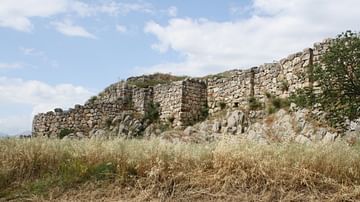
Definition
Tiryns
Located on the fertile Argolid plain, Tiryns lies between Nafplion and Argos in the eastern Peloponnese in Greece. The site has been inhabited since the Neolithic Age (7th-4th millennium BCE) but reached its greatest period of importance...

Definition
Ogham
One of the stranger ancient scripts one might come across, Ogham is also known as the 'Celtic Tree Alphabet'. Estimated to have been used from the fourth to the tenth century CE, it is believed to have been possibly named after the Irish...

Definition
Torah
The Torah, also known as the Pentateuch (from the Greek for “five books”), is the first collection of texts in the Hebrew Bible. It deals with the origins of not only the Israelites but also the entire world. Though traditionally the Hebrew...
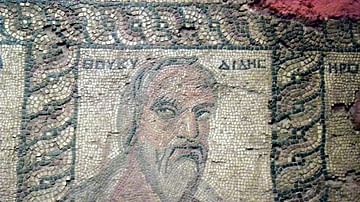
Definition
Thucydides
Thucydides (c. 460/455 - 399/398 BCE) was an Athenian general who wrote the contemporary History of the Peloponnesian War between Athens and Sparta, which lasted from 431 BCE to 404 BCE. However, Thucydides' History was never finished, and...

Definition
Ancient Cyprus
Cyprus is a large island located in the eastern Mediterranean Sea, east of Greece, south of Asia Minor, west of the Levant, and north of Egypt. The naming of the island is a matter of dispute amongst historians. One theory suggests that...
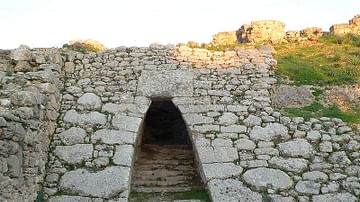
Definition
Ugarit
Ugarit was an important sea port city in the Northern Levant. Though never a world power, Ugarit was a key economic center in the Ancient Near East, serving as a major trade center between Egypt and the major powers of Bronze Age Asia Minor...

Definition
Roxanne
After Alexander the Great's victory over King Darius III at the Battle of Gaugamela in 331 BCE, he had to contend with small rebellions that broke out across his empire. In the summer of 328 BCE, one such rebellion occurred in the eastern...

Definition
Eucratidia
Eucratidia was a Greek town in Bactria, one of the easternmost area ever controlled by the Greeks, located at the modern site of Aï Khanum in North-Eastern Afghanistan. The history of this city is still rather unknown, but it seems that...